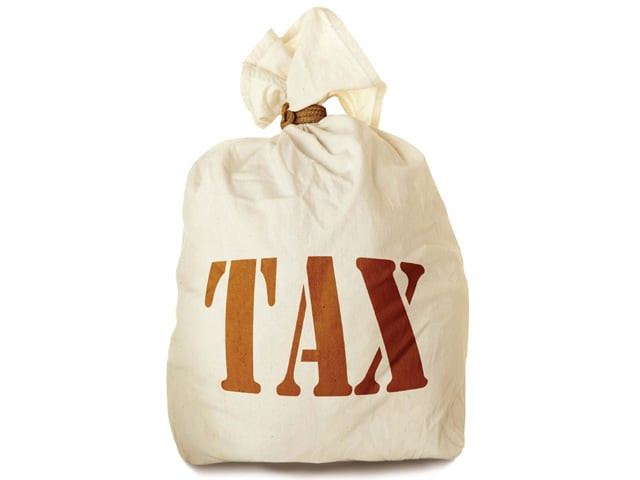Tax authorities still divided over feasibility of 2012-13 targets
Chairman says no need to revise tax collection target, other officials disagree.

While talking to the media on the sidelines of a Public Accounts Committee meeting, Hakeem said there was no need to revise the Rs2.381 trillion tax target, as he considers it achievable. He said the existing difference between tax collection and true potential was an opportunity for the FBR to increase compliance and collection.
According to a World Bank report, the tax gap in Pakistan is 79% of the total collection at any given time, and 70% of the gap was due to tax evasion in the corporate sector.
Effective tax automation, and supporting and strengthening the corporate sector are the two main priorities set out by Hakeem. He supports the policy of extending amnesty schemes, while arguing that advanced countries, too, offer such incentives to taxpayers. He also ruled out the possibility of dividing the collection target for sales tax on services between the FBR, the Sindh Revenue Board and the Punjab Revenue Authority.
Contrary to the chairman’s stance, FBR line members have not only been seeking revision of the target, but have also recommended that the sales tax on services target be separated from the sales tax on goods target. The country’s two most populous provinces – Sindh and Punjab – have established their own authorities to collect tax on services, but the finance ministry still conflates their individual targets with targets set for the FBR, in order to artificially inflate actual collection.
Since July 1, the first day of the new fiscal year, senior tax officials have advocated lowering the tax target; arguing that it has been “imposed” by the finance ministry and is beyond the administrative capacities of the FBR.
Differences of opinion within the FBR may result in half-hearted attempts at achieving targets; this may be observed in the unofficial collection results for July. Officials informed us that the authority collected only Rs112 billion in taxes in the first month of the new fiscal year; almost the same as in July last year, when it collected Rs112.4 billion.
Even last year, when Mumtaz Haider Rizvi headed the FBR, the authority’s members used to call the Rs1.952 trillion target set for 2011-12 unrealistic; contrary to the chairman’s repeated claims that it was achievable.
Eventually, the FBR missed the target by a whopping Rs75 billion, according to unofficial figures. Hakeem, who replaced Rizvi as FBR chairman, later claimed that last year’s collection figures could not be released officially “due to a strike observed by the Accountant General of Pakistan Revenue employees.”
Corruption
To a question about increasing corruption in the FBR, Hakeem said he was not aware of any such thing and had made all transfers and postings on merit.
When asked whether the FBR would surrender powers that authorise it to issue statutory regulatory orders (SROs) – which some say have become a source of corruption – the chairman enigmatically replied that “all powers should be located where there is an element of accountability.”
In the much-trumpeted Reformed General Sales Tax (RGST) Bill, the International Monetary Fund had suggested withdrawing FBR’s SRO powers and transferring the same to the parliament. Insiders say that the FBR is not enthusiastic about the idea, and that one of the main reasons behind the parliament’s inability to approve the RGST Bill is the FBR’s opposition to the withdrawing of its power to issue SROs.
Published in The Express Tribune, August 7th, 2012.



















COMMENTS
Comments are moderated and generally will be posted if they are on-topic and not abusive.
For more information, please see our Comments FAQ